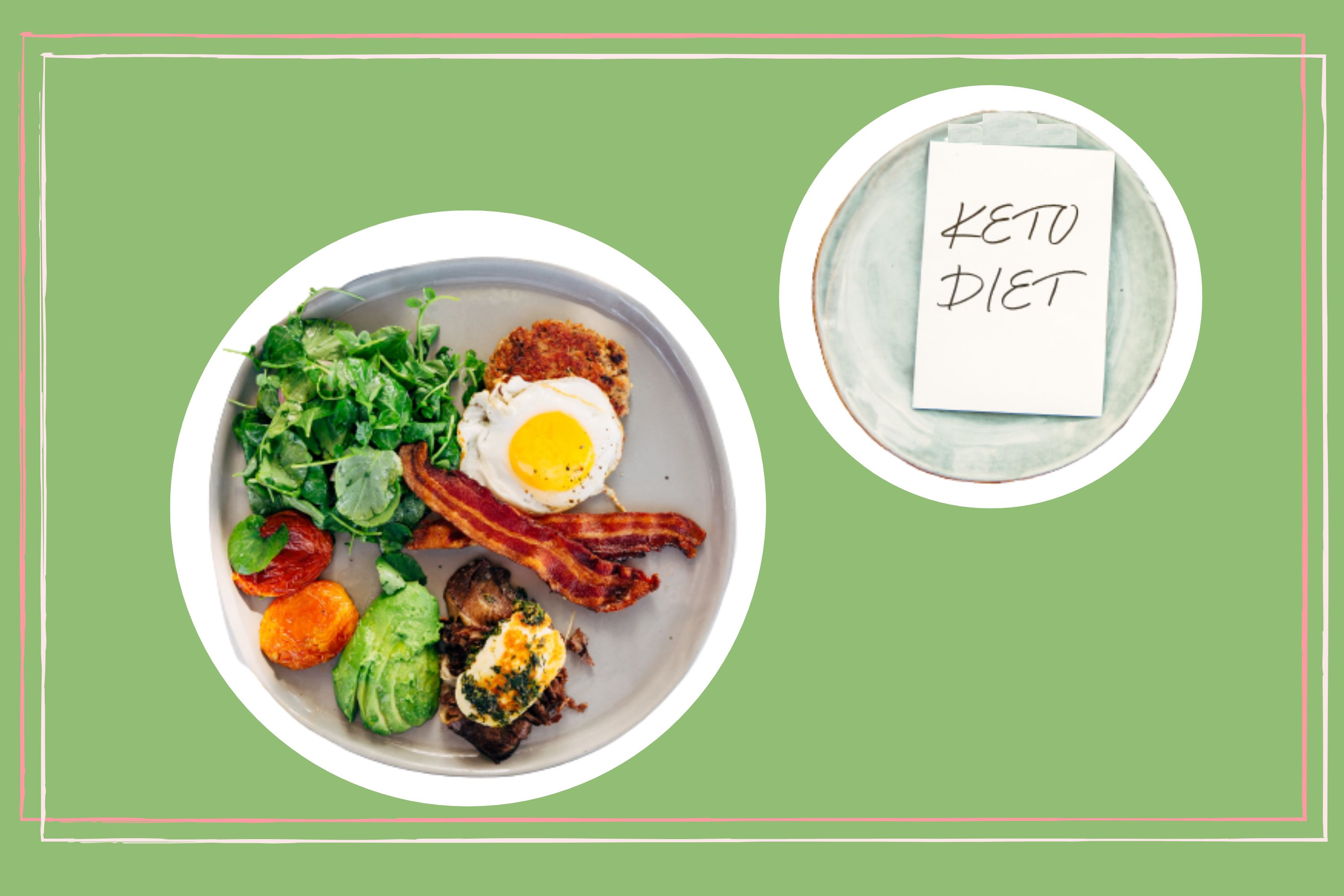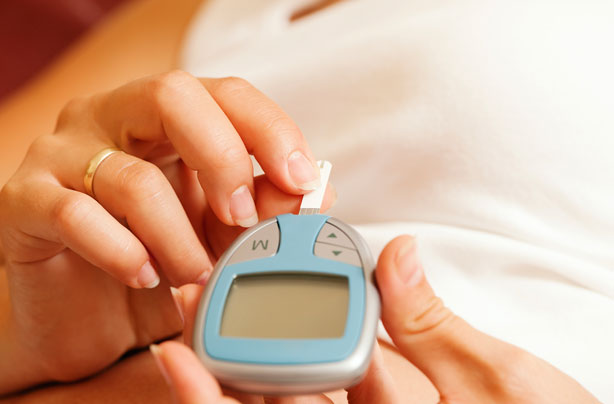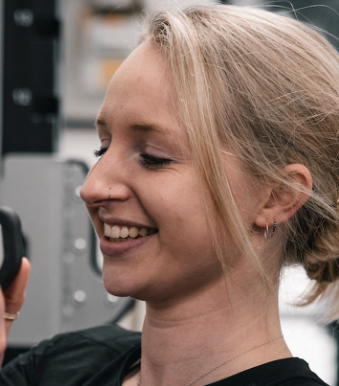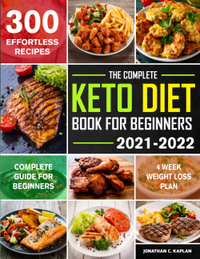What is the Keto diet and what can you eat on it?
Say goodbye to carbohydrates


The keto diet is a favourite with Halle Berry, the Kardashians and basketball player Lebron James. But what exactly does it entail? We've asked the experts.
It's the famous low-carb high-fat diet that has garnered an army of fans worldwide. They claim that unlike quick-fix diets, the ketogenic plan changes eating habits and develops a healthier way of eating long term. And it's this and the different variations of this diet - including the Lazy keto plan - that enables dieters to easily factor it into their lifestyle.
Though there's plenty of praise, some skeptics suggest it’s outdated for painting carbohydrates as a non-essential. And even representatives of Harvard Medical School have warned of its risks. "The Keto diet, when done right and for the appropriate reasons, can be a safe and effective option for many," Nutritionist and PT Florence Seabright tells us. "If, however, it’s being undertaken for the wrong reasons, such as weight loss, it can be potentially damaging and demotivating long term."
What is a keto diet?
Essentially the keto diet is a low-carb, moderate-protein and very high-fat eating plan. "The goal of this kind of diet is to reduce carbohydrates enough (less than 20-50g per day) that you put the body into a state of ketosis, in which it prioritises burning fat for fuel," explains nutritionist Flo, founder of FBF Collective.
The keto diet dates back to the 1920s when it was originally used as a treatment option for children with epilepsy. Though over time, it has became more popular as a weight loss diet. Whilst different variations of the keto diet exist, the plan usually focuses on the food groups - carbohydrates, protein and fat - in varying consumptions.
An Indian review into keto diets established four different kinds:
- Standard ketogenic diet: A typical day on the original keto diet would see a dieter consume 70% fat, 20% protein, and only 10% carbs.
- High protein ketogenic diet: As the title suggests, this version of keto is more of a high-protein diet. This increases the protein allowance to 35% a day. Whilst decreasing the daily fat allowance to 60%. Plus only 5% carbs.
- Cyclical ketogenic diet: The cyclical keto diet involves five days on the original keto plan and 2 high carb days.
- Targeted ketogenic diet: This alternative keto plan is similar to the standard plan, but allows carbs to be eaten before workouts.
How do keto diets work?
Keto diets work by putting the body into a metabolic state known as ketosis. This ‘state’ forces the body to burn fat rather than carbs for energy. And this is what helps dieters to lose weight.
GoodtoKnow Newsletter
Parenting advice, hot topics, best buys and family finance tips delivered straight to your inbox.
"Due to the significantly reduced intake of carbohydrates, your body starts producing high levels of “ketone bodies” from fat," Flo explains. "These are prioritised to help fuel the body, rather than using glucose."
Glucose (or sugar) is usually the body's main source of energy, so when this is deprived it needs to get this from elsewhere - in this case the high-fat you are consuming on keto. This in turn is what turns your body into a fat-burning machine.
One Australian study indicates your body is in ketosis when you experience symptoms like dry mouth, plus increased thirst and urination. Whilst another study warns that protein consumption can affect your ability to enter ketosis, because this can be converted into glucose if eaten in high quantities. It's for this reason that on a standard keto diet - your protein allowance is restricted to 20% a day.
A loss of water weight is another way keto diets works to aid weight loss. One Spanish study highlighted that the restriction of carbohydrates on keto leads to a reduction in water weight. This is because when carbohydrates are stored in the body, they hold water. So when you reduce the amount of carbs going into the body, these stored carbohydrates are released with the water, resulting in weight loss in some circumstances.
Keto diet food list
- Meats – fish, beef, lamb, poultry, eggs, etc.
- Leafy greens – spinach, kale, etc.
- Above ground vegetables – broccoli, cauliflower, etc.
- High fat dairy products – hard cheeses, high fat cream, butter, etc.
- Nuts and seeds – macadamias, walnuts, sunflower seeds, etc.
- Avocado and berries – raspberries, blackberries, and other low glycemic impact berries.
- Sweeteners – stevia, erythritol, monk fruit, and other low-carb sweeteners.
- Other fats – coconut oil, high-fat salad dressing, saturated fats, etc.
A post shared by Suzanne Ryan (@ketokarma)
A photo posted by on
Foods to avoid on the keto diet
- Grains – wheat, corn, rice, cereal, etc.
- Sugar – honey, agave, maple syrup, etc.
- Fruit – apples, bananas, oranges, etc.
- Tubers – potato, yams, etc.
- Legumes - kidney beans, lentils, chickpeas, etc.
- Sauces - mayonnaise, tomato ketchup, BBQ sauce, salad dressings, etc.
- Alcohol - beer, wine, spirits, etc.
When following keto you'll want to stick to low carb recipes or have meals that skip them entirely. It's also important to stop drinking alcohol whilst on the plan.
A lot of the foods you're told to avoid are also ones that contain too much sugar or hidden sugar. Indeed a 2020 review into sugar and obesity deemed that the two had a hand-in-hand relationship.
Recommended books:
Complete Keto Diet Book (2021-2022) - £9.99 | Amazon
A total guide for beginners and long-term followers, this bookazine is essential for anyone who wants to learn more about living a keto lifestyle. Find recipes for easy meals, delicious desserts and healthy snack ideas aong with tips for sticking to your plan.
Following a keto diet doesn't mean you have to miss out on cakes, cupcakes, biscuits and even doughnuts - as this recipe bookazine shows! Find 50+ low carb and sugar free recipes, with under 10g net carbs. This in-depth guide also looks at the science and benefits of the diet plan.
What are the benefits of the keto diet?
1. Weight loss
Dr Sohere Roked from OMNIYA MediClinic says that because you are removing carbs and sugars largely from your diet, the body has no other option but to burn fat for energy. And this inevitably is what causes weight loss on the Keto plan. What's more, there are over 30 scientific studies showing that, compared to other diets, low-carb and keto diets result in more effective weight loss.
Take for example this Brazilian study, which found that weight loss results were greater on the keto diet compared to a low fat diet.
2. Controlled blood sugars
Dr Roked confirms that keto naturally lowers blood sugar levels. This is because you’re not eating as many carbs, so your body can’t produce glucose. As such, researchers at the South Asian University even "recommend it (keto) as an adjunctive treatment for type 2 diabetes". With their 2020 study also finding the plan helps to control glucose levels.
3. Increased energy
Because a keto diet helps your body turn fat into an energy source, it is also helping to increase your energy levels as it is giving your body a more reliable energy source. This allows you to feel more energised throughout the day.
4. Good for the brain
A 2019 study found that the ketogenic diet "improved cognitive performance in elderly adults with Alzheimer's disease". There's further good news too, with an American study reporting that those who follow a low-carb plan had improved verbal memory.
5. Better appetite control
Fat is naturally more satisfying and ends up leaving us in a satiated (‘full’) state for longer. This means less cravings for less junk food and snacking in-between meals. In fact, one Aberdeen based study deemed keto as significantly reducing hunger and food intake compared to non-ketogenic diets.
What are the side effects of the ketogenic diet?
The most common side effects for people undergoing the keto diet are headaches, tiredness, muscle fatigue, cramping, constipation and heart palpitations.
Often these symptoms are mild and short-lived for most people. As they're just your body adjusting to burning a new energy source: fat. Nevertheless, there are things you can do to help deal with said side effects.
How to reduce the side effects:
- Cramps: specifically leg cramps, are a result of keto being a diuretic (promoting water and salt loss). Therefore it's essential to make sure you drink plenty of water and up your sodium intake – sprinkle a little salt on everything!
- Constipation: Seek out natural constipation remedies like drinking waters and ensuring you eat vegetables which contain good quality fibre.
- Breath: "Some people may also experience bad breath," nutritionist Flo tells us. So be sure you're brushing frequently and have mints to hand after meals.
Nutritionist and PT Flo puts some of these side effects down to the change in carboydrate consumption too:
"A sudden and drastic reduction in carbohydrates can initially cause some side effects; from nausea and vomiting to flu like symptoms in the first few weeks," she tells us. "These generally improve after the initial period and one way of minimising these side effects would be to reduce carbohydrate intake over time rather than all at once."
If you experience side effects like heart palpitations, stop your diet immediately and seek medical help. No diet is ever worth risking your life for.
Is the keto diet safe?
Yes, the keto diet is generally very safe. Though health professionals have suggested that people with certain conditions may need to take extra precautions when on the plan.
People who suffer from diabetes may have to dramatically lower any insulin doses they take immediately.
"As the keto diet restricts the carbohydrates that raise your blood sugar, you may no longer need medication to lower it," GP Dr Shan Hussain tells GoodtoKnow. "Taking the same dose of insulin as you did prior to adopting a low-carb diet might result in hypoglycemia (low blood sugar)."

If you are on blood pressure medication and start a low-carb diet, there’s also a risk of getting low blood pressure. Which means you may very quickly become too healthy for your medication. If you feel weak, tired, dizzy or generally unwell you should check your blood pressure. If it’s low (e.g. below 120/80) you should contact your doctor to discuss lowering or stopping your medication.
Dr Shan advises anyone who is "on medication for diabetes or hypertension should proceed with caution and seek medical advice prior to undertaking the Keto diet".
Women who are breastfeeding should also be cautious and choose a more moderate low-carb version of the keto diet. As in extremely rare cases a strict low-carb diet could be potentially dangerous.
Breastfeeding can cause you to lose sugar via the milk, possibly around 30 grams per day or more. So not eating carbohydrates could lead to a dangerous condition called ketoacidosis, in rare cases. Aim for around 50 grams of carbs a day and always consult your health advisor or breastfeeding specialist for advice before embarking on a diet while breastfeeding.
The restrictive nature of Keto furthermore means that it can incur some dietary problems whilst following. And because of this, Flo asks to seek medical advice first. Especially if worried:
"Undertaking a very restrictive dietary intervention such as this can have implications on your vitamin and mineral intake, fibre intake, food choices and habits," she says. "Even your relationship with food.
"Therefore, if the ketogenic diet is something you are keen to try, I would always advise getting some professional support from a fully qualified Nutritionist or Dietitian to help you understand if this is the best way to reach your specific goal. And, if so, to support you along the way."
Keto diet - a nutritionist's verdict
Nutritionist and personal trainer Flo Seabright doesn't see the keto diet as a sustainable long-term diet. "Although there is some discussion about the potential health benefits of following a ketogenic diet, it is often wrongly hailed as a 'magic pill' for weight loss and can be difficult to do safely and effectively alone."
"We already know that carbohydrates are not the enemy and, although the sheer amount of restriction needed to achieve such a low intake of carbohydrate might, initially, contribute to reducing overall calorie intake (the primary driver of fat loss), the purpose of the keto diet and achieving ketosis is not to help facilitate weight loss."
She asks that those who are thinking about taking it up consult a medical professional first. As it's important to receive the right information to "maximise the chances of a positive outcome".
"Just like any other dietary intervention, Keto has its place," she adds. "It’s just about making sure we are using the right tool, at the right time, for the right reason."

Florence Seabright is the Founder of the FBF Collective - who offer personal training, coaching and nutritional advice in Islington London. A Level 3 Certified Trainer, Florence is also an MNU Certified Nutritionalist and is registered with Chartered Institute for the Management of Sport and Physical Activity.
Video of the Week:

Emily Stedman is the former Features Editor for GoodTo covering all things TV, entertainment, royal, lifestyle, health and wellbeing. Boasting an encyclopaedic knowledge on all things TV, celebrity and royals, career highlights include working at HELLO! Magazine and as a royal researcher to Diana biographer Andrew Morton on his book Meghan: A Hollywood Princess. In her spare time, Emily can be found eating her way around London, swimming at her local Lido or curled up on the sofa binging the next best Netflix show.

